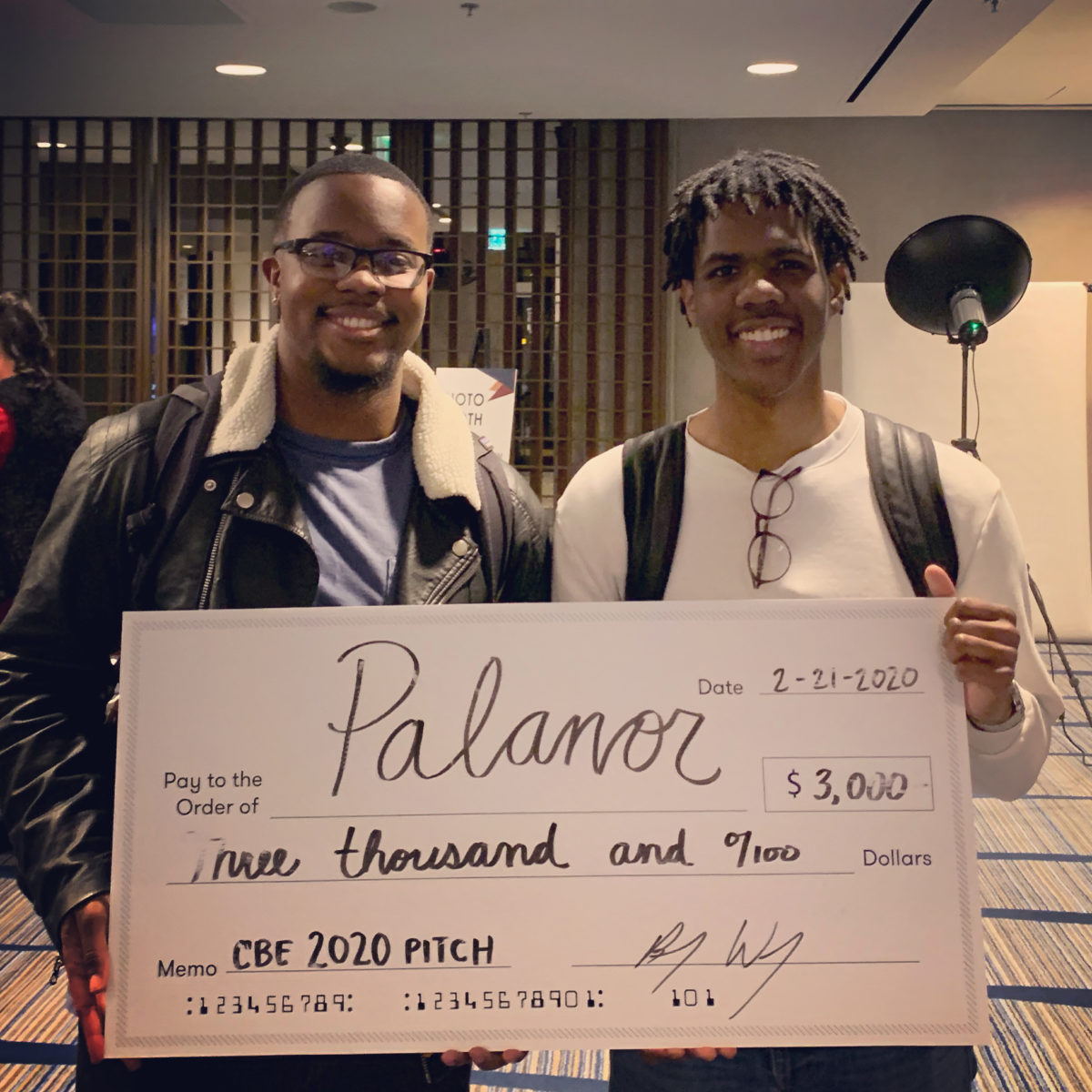While many prefer to take their time on developing a business and a product, Georgetown-based founder Adrian Abrams thinks that speed can be a crucial element when it comes to launching a startup.
“That’s one of the biggest issues in the mobile app ecosystem,” Abrams told Technical.ly. “It’s so saturated, so competitive that speed is certainly to your advantage. If you wait, the difference of your app’s success could be in as little as a month or three depending on when you decide to launch.”
Appdrop, founded in 2019 by Abrams and cofounder Kamar Mack, is designed as a solution to this timing issue. Built using Apache Cordova, it allows businesses to develop a mobile app without the need to hire a developer or create their own code.
Using Appdrop, startups and emerging businesses can create apps using a “drag and drop app builder” that lets founders choose what they need in an app, and produce one in record time, according to Abrams. The platform can design anything from the actual functionalities of the app to graphic design, he added, and users can continue designing the app and making updates as their business grows.
Abrams said that the founders wanted to create Appdrop because, for many founders, the only options at the moment are hiring a coder or using clunkier or costly no-code builders. With Appdrop, they wanted to create a “unified solution” that was powerful enough for some of the most ambitious startup ideas.
“We started Appdrop just to make sure that when folks have very lofty startup dreams or app development dreams….that [it] was easy enough that anybody could use it and that it was fast enough to make sure that you can be competitive in the growing digital era,” Abrams said.
So far, the company has two full-time employees, but it’s on the rise as of late. This week it landed a spot in the inaugural Future Collective Fellowship Program. The six-month funding and accelerator program for Black-owned businesses from freelance platform Fiverr, strategy firm maestra and DC incubator 1863 Ventures is offering mentorship as well as a $24,000 investment for the selected startups, which were picked from nationwide applicants. Fellow DC startup Budget Collector also landed the fellowship.
“The Fiverr, 1863 and maestra teams were all incredibly impressed with the businesses that both Adrian from Appdrop and Ebonique [Boyd] from Budget Collector have built,” 1863’s Melissa Bradley told Technical.ly. “They are unique, solve challenging and complex problems, and both founders have clear visions for where they want to take the companies in the future. We also all believe that they are at the stage of development where they will benefit greatly from both the funding and the programming they’ll receive as part of Fiverr’s Future Collective.”
The company has also caught the eye of DC pros like Khuram Zaman, CEO of Fifth Tribe and 2020 RealLIST Connector.
One of the most crucial aspects of Appdrop, Abrams said, is its ability to build apps in such a quick time frame. Users can have their app published in the iOS and Google Play app stores in as little as three to four days, should they choose, although he noted the average is closer to two weeks for a first-time, blank canvas app.
Still, he said, the fast turnaround can make or break startups, allowing them to strike while the iron is hot with their ideas. The no-code element, he added, is also particularly useful for founders around the globe who are new to the development game.
“There are still emerging economies that are new to technology, that are new to mobile app development, that will see different insights for products and mobile apps that are going to be so uniquely valuable to their use case,” Abrams said. “But if they can’t actually build it, then now their region is going to lose out on a great solution to a bunch of people’s problems.”
With the fellowship, Appdrop is planning to build out some of its marketing strategies and continue working on the product. Right now, Appdrop doesn’t have the option to input an existing app into its system, but Abrams said that’s in the works as the startup grows.
The key to Appdrop’s business model and future growth, Abrams said, is heavily reliant on the growing need for businesses to have a mobile app. Yet, he doesn’t expect that to be an issue in the coming years.
“Every business is going to need a mobile app in the future,” Abrams said. “If that thesis isn’t true, then we won’t be around in a couple of years. But if our bet is correct, that every single business is going to need a mobile app to keep them competitive in the digital era…we become a really cool, a really valuable technology.”







